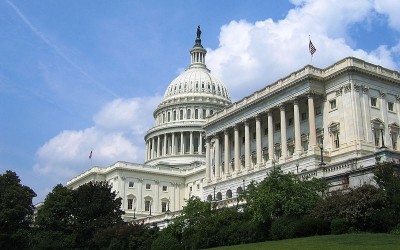Is Congress funding my data? President Trump’s agenda to cut costs and streamline government has those who use and value Federal statistics concerned about the future of critical agencies we rely on. Frankly, these agencies, such as the Census Bureau, Bureau of Labor Statistics (BLS), and Bureau of Economic Analysis (BEA) have been flat funded […]
Continue Reading
Government provided data plays an integral role in decision-making within businesses and government. It is important that the data be obtained and reviewed with a high level of rigor to maintain its integrity. A large quantity of data comes directly from the Federal government thanks in part to agencies such as the Bureau of Labor […]
Continue Reading
Economic Development Related Cuts The Budget proposes to eliminate funding for many independent agencies, including: the Appalachian Regional Commission; the Delta Regional Authority; the Denali Commission; the Northern Border Regional Commission. Eliminates the Economic Development Administration, which provides small grants with limited measurable impacts and duplicates other Federal programs, such as Rural Utilities Service grants […]
Continue Reading
We need your help. We need you or your organization to help educate your Congressional leaders on the importance of funding the 2020 Census as well as related “periodic programs” such as the American Community Survey (ACS) and the Economic Census. The U.S. Congress is back in session this week (November 28), and they are […]
Continue Reading
This year’s Council for Community and Economic Research Conference (C2ER) and LMI Institute Forum is focused on the global impact of regional partnerships, and managers from around the U.S. will gather to discuss topics facing industries, the economy, and the talent pool. The conference takes place June 6-10 in Minneapolis. Classes, presentations, and breakout sessions are […]
Continue Reading
Congress and the Administration have reached a budget deal for FY2016 (and FY2017) that will increase the overall spending limit for non-defense discretionary programs by $25 billion for the fiscal year that started October 1st. The House and Senate Appropriations Committees must now revise the 12 annual funding bills, and Congress must enact them, before […]
Continue Reading
The Council for Community and Economic Research organized a teleconference-style focus group on March 11, 2015, to learn more about our members’ most commonly-used data sources and to gather recommendations for future products for the U.S. Bureau of Economic Analysis (BEA).
Continue Reading
Beginning in 2017, those interested in incentives and tax abatement expenditures spending will likely have access to significantly more data than is currently available. The Governmental Accounting Standards Board (GASB), the independent organization which “establishes financial accounting and reporting standards for state and local governments,” is asking for public comments on a proposed change to current standards for property and tax abatement agreements.
Continue Reading
President Obama signed the Workforce Innovation and Opportunity Act (WIOA) into law on July 22nd, after overwhelming approval in the House and Senate. WIOA is the most significant reform of federal job training programs in more than 15 years. The majority of WIOA provisions will become effective on July 1, 2015, the first full program year […]
Continue Reading
The U.S. House of Representatives passed with bipartisan support the Workforce Innovation and Opportunity Act (WIOA) 415-6. The legislation, authored by Senators Harkin, Alexander, Murray, and Isakson and Representatives Kline, Miller, Foxx, and Hinojosa, was previously approved by the Senate, 95-3. The legislation is now set to become law upon the President’s signature. Read on […]
Continue Reading


